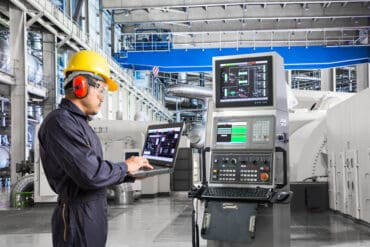
There is no question that auto manufacturers will rely on smart manufacturing strategies and solutions in the coming year. Here are some trends to look for in 2024.
Economic uncertainties, changing customer preferences, rising costs, a tight labor market, continued supply chain issues, and more will drive the use of digital technologies by automakers in 2024. As such, they will need to more aggressively adopt smart manufacturing strategies that integrate advanced technologies, including the Internet of Things (IoT), data analytics, AI, digital twins, and more.
These technologies will be applied and used in many different ways within the automotive manufacturing market next year to improve operational efficiencies, enable flexibility to meet changing market demands, and meet ever-more stringent sustainability goals and mandates.
Some areas where smart manufacturing will support or play an increasing role in 2024 include the ability to:
Efficiently react to market changes: Supply chain issues, changing customer preferences, and the need to embrace sustainability across all aspects of operations mean automakers need to be more nimble in 2024. They need the ability to spot issues or changes in the making and quickly adjust operations to counter those changes.
Smart manufacturing can help in a number of ways. Real-time data and its analysis can provide insights into emerging supply chain and operational issues. And virtual commissioning lets manufacturers try new processes and evaluate new equipment on production lines without having to physically purchase or deploy anything.
See also: Enabling Greatly Needed Flexibility with Smart Manufacturing
Aid the transition to electric vehicles (EVs): Automakers will expand their offerings in 2024 to include (more) electric vehicles in their product lines, offering a mix of battery-electric vehicles, hybrids, and plug-in hybrids. To do so, they must revamp their work cells, production lines, and entire operations.
Smart manufacturing can help in several ways. Digitizing supply chains will help automakers incorporate the additional vendors that will provide the new materials, batteries, and more needed to build EVs. And virtual commissioning will help them modify existing and build new production operations to produce EVs.
See also: Smart Manufacturing Essential for the Transition to EVs
Meet persistent labor and talent shortages: A recent National Association of Manufacturers (NAM) survey found that almost three-quarters of manufacturing executives believe that “attracting and retaining a quality workforce is their primary business challenge.” While the survey was for manufacturing in general, the findings are certainly applicable to automotive manufacturing.
Smart manufacturing in 2024 can help in this area in a number of ways. Automation can reduce the number of people needed to run a plant. And virtualization and digital twins can be used to train workers on production systems without having to be on the line. That helps upskill existing staff, thus avoiding the need to hire (more) new people.
See also: Human-robot Collaboration and Smart Manufacturing
Other smart manufacturing trends to consider for 2024
There is no question that auto manufacturers will rely on smart manufacturing strategies and solutions in the coming year.
Some areas on the edge that may play a role to keep an eye on include how the industry will embrace generative AI and whether the industrial metaverse will come to be. Forrester predicts that “a healthy pragmatism will take hold” with regard to these two technologies. It noted in its prediction: “The prior bold claims on everything from generative AI and the industrial metaverse…will be toned down as the painful realities of grappling with issues such as technical debt, legislation, and global supply chains bite.”







